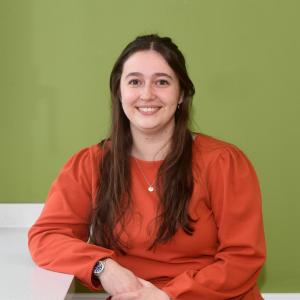In Thaler v Comptroller-General of Patents, Designs and Trade Marks [2023] UKSC 49, following a series of appeals by Dr Thaler, on 20 December 2023 the UK Supreme Court (Court) unanimously ruled that a machine acting autonomously and powered by artificial intelligence (AI) cannot be an “inventor” under the Patents Act of 1997 (UK) (Act), as an “inventor” must be a natural person. This decision is consistent with decisions in other jurisdictions on the same application, namely Germany, Australia and the U.S.
Background
In 2018, Dr Stephen Thaler filed two applications for the grant of a patent for two inventions under the Act, neither application designated a human inventor. Through subsequent correspondence with the United Kingdom Intellectual Property Office (UKIPO), Dr Thaler reported that the inventions were created by the AI of a machine owned by him called DABUS and that he had acquired the right to the grant of the patents because he owned DABUS. UKIPO objected and stated that the application did not comply with the Act.
The objection of UKIPO was maintained by the Officer for the Comptroller in 2019, the High Court in 2020 and the Court of Appeal in 2021. The Court of Appeal found that: (i) DABUS did not qualify as an inventor within the meaning of the Act because such an inventor was required to be a person; (ii) there was no general rule of law that any intangible property (including an invention) created by a machine was the property of the machine or the owner of the machine; and (iii) that the Comptroller had been right to find the applications would be taken to be withdrawn.
UK Supreme Court decision
Following the above series of appeals, the Court considered that reference to “inventor” in the Act refers exclusively to a natural person and therefore not a machine such as DABUS. As a result, the right to apply for a patent is a statutory right that can only be granted to a natural person.
Secondly, it found that Dr Thaler’s ownership of DABUS did not fall within the criteria for who has a right to apply for a patent and who may obtain a patent under the Act. The Court agreed with the Court of Appeal that as an invention is intangible property, it does not follow that, as the owner of DABUS, Dr Thaler then owned the new property produced by the existing property.
Accordingly, the Court found that the Comptroller had been right to find that Dr Thaler’s applications were withdrawn under the Act. Dr Thaler’s appeal was dismissed.
Comment
This decision emphasises the requirement for a human inventorship but the Court did not preclude a person from claiming to be an inventor when using AI to devise an invention. The Court focussed on applying the Act to the specific facts it was faced with and, interestingly, did not concern itself with whether technical advances generated by machines autonomously and powered by AI should be patentable. We will continue to monitor whether the relationship between AI and patent inventorship changes.
Click here to read the Court’s ruling in detail.
Written by Shivani Pandya, Solicitor and Melissa Scott, Trainee Solicitor in our Commercial team.
The information provided in this article is provided for general information purposes only, and does not provide definitive advice. It does not amount to legal or other professional advice and so you should not rely on any information contained here as if it were such advice.
Wright Hassall does not accept any responsibility for any loss which may arise from reliance on any information published here. Definitive advice can only be given with full knowledge of all relevant facts. If you need such advice please contact a member of our professional staff.
The information published across our Knowledge Base is correct at the time of going to press.


